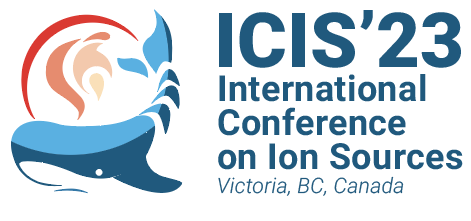Speaker
Description
A laser ion source employing a cryogenically solidified gas target has been developed and demonstrated to supply highly charged carbon ions for a long period of time without being limited by the lifetime of the laser target. This new laser ion source is expected to be applied to the next-generation heavy ion cancer treatment accelerator based on inductive synchrotron technology. A solid carbon dioxide (CO2) layer with a thickness of about 10-500 μm was formed on the cylindrical cold head cooled by liquid nitrogen by sublimation of CO2 gas. By irradiating the layer with a frequency-doubled Nd:YAG laser, an ablation plasma containing highly charged carbon ions was generated and analyzed. Although the solid CO2 layer is locally removed by a single laser irradiation, we could stably and repeatedly supply carbon ions by precisely controlling the laser irradiation position on the target with stage controllers. We found that the thickness of the CO2 layer strongly affected not only the size of the removed layer, but also the damage on the cold head surface. These results are likely due to the laser peening effect associated with laser ablation. In the presentation, we discuss several important issues essential for the practical application of laser ion sources using the reproducible cryogenic target, i.e., optimization of conditions for cryogenic target formation, reproducibility of laser ablation from regenerated solid CO2 layers, and damage to the substrate accompanying laser irradiation and their mitigation measures.
| Email Address | hasegawa.j.aa@m.titech.ac.jp |
|---|

